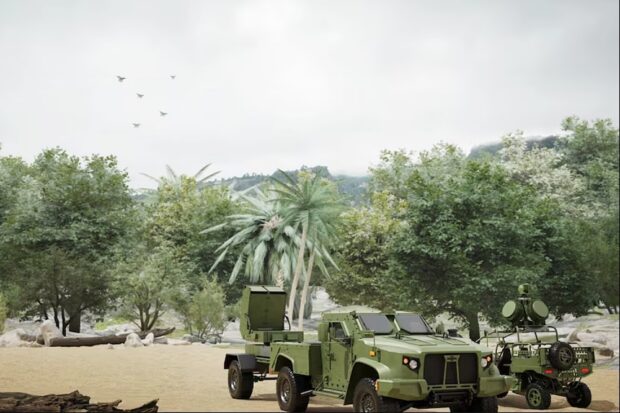– Epirus has announced the introduction of Leonidas Expeditionary, developed as part of a $5.5 million contract award from the U.S. Navy’s Office of Naval Research (ONR).
The HPM system, with the program name: Expeditionary Directed Energy Counter-Swarm, or ExDECS, is being developed by ONR, Marine Corps Warfighting Lab (MCWL) and the Joint Counter-small Unmanned Aircraft Systems Office (JCO).
The program’s future will involve initial integration with the U.S. Marine Corps’ Common Aviation Command and Control System (CAC2S), along with field experimentation and multi-platform testing in expeditionary scenarios to enhance USMC’s Ground Based Air Defense Capabilities.
Epirus developed ExDECS, a solid-state, software-defined, long-pulse HPM system to support U.S. Marine Corps Expeditionary Advanced Base Operations (EABO) and counter-unmanned systems missions. The system is designed to be compact and easily maneuverable, making ExDECS operationally relevant to any expeditionary force mission set.
“With drone warfare dominating daily headlines, we are proud to bring ExDECS to life and work with the Marine Corps to develop an expeditionary HPM capability,” said Andy Lowery, Chief Executive Officer, Epirus. “We are committed to accelerating the delivery of operational HPM capabilities for cUAS across the joint force.”
Leonidas Expeditionary, or ExDECS, is the latest derivative of the Leonidas HPM product suite and utilizes Epirus’ revolutionary approach to HPM, dramatically reducing the size and weight of the system and enabling greater operator control. The modular and scalable system is designed to fit on a Joint Light Tactical Vehicle (JLTV) trailer and compliment Low Altitude Air Defense in expeditionary operations.
As part of the contract, Epirus will deliver a completed ExDECS HPM system to the Marine Corps Warfighting Lab by the end of 2024.
Source: Epirus

